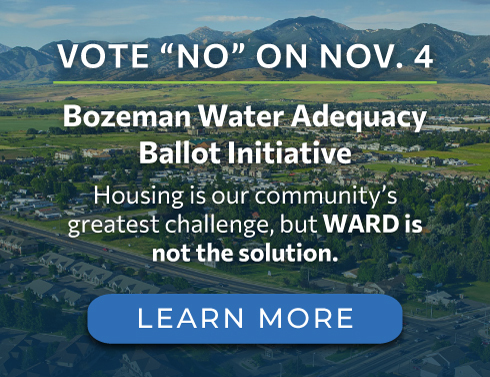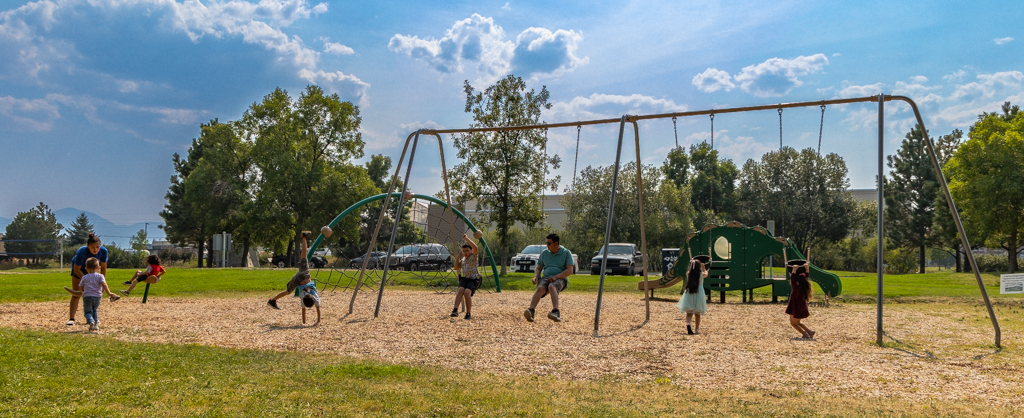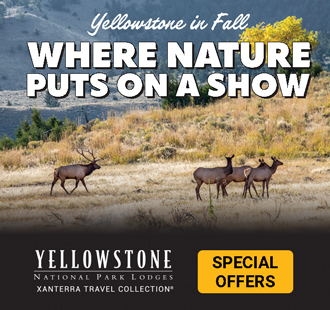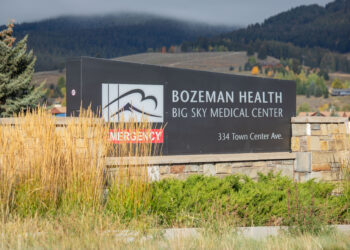By Fischer Genau DIGITAL MEDIA LEAD
Ramon had been living in Bozeman for six months when he fell. He was working construction in Big Sky, putting up a roof in the middle of February, when he slipped on a patch of ice, plummeted to the ground and shattered his leg. His boss refused to give Ramon workman’s compensation because he was still undocumented—Ramon had just moved to Bozeman from Honduras—and his boss fired him, leaving him on the side of the road with his 11-year-old daughter when temperatures were dropping as low as minus 35 degrees Fahrenheit.
“Nobody deserves to be alone in those situations,” said Kendall Levinson, board chair for Bienvenidos a Gallatin Valley.
Bienvenidos is a nonprofit connects Spanish-speakers moving into greater Bozeman with local mentors and resources to help them thrive in the community. Levinson met Ramon, whose name is an alias used by EBS with respect to privacy, after he reached out to the Human Resource Development Council, a Bozeman nonprofit that combats poverty through nearly 50 initiatives , and HRDC put him in touch with Bienvenidos.
“He was homeless in the middle of the winter on the side of the road with a broken leg and an 11-year-old daughter and he had no idea—no idea who to call, no friends, no family,” Levinson told EBS.
Bienvenidos connected Ramon with a personal injury attorney—undocumented workers are still entitled to workers’ compensation if they’re hurt on the job in Montana—and provided him with a qualified interpreter to help the two communicate. Volunteers for the nonprofit would even drive him back and forth from doctor’s appointments, and, with their support, he was eventually able to get the care he needed.
“His leg healed and he ended up going back to Honduras to be with his family, but he didn’t feel so alone because he knew if he needed someone, he could call and we would try to help him problem solve,” Levinson said.
Bienvenidos helps people like Ramon navigate the patchwork system of public resources available for newcomers to a foreign country, regardless of whether they speak English or have legal status. The nonprofit also provides interpreters for Spanish-speakers trying to get health care, rent a house, or secure other necessary services like garbage pickup, and its team of 80 volunteers serve as mentors for families adjusting to life here.
“We want Montana to be a place where people are good neighbors and they welcome each other with open arms, where everyone feels at home, where we celebrate everybody’s story and where…people can thrive no matter where they come from,” Levinson said. “That’s our big vision.”
Meeting a need
Bienvenidos was founded in 2020 by Tina Visscher and Ita Killeen. Visscher heard of students in the Bozeman School District who needed winter coats, and she assembled a group including herself, Killeen, Heather Jackson, Amanda Cater and Ellen Guetter to put on a clothing drive, providing coats and warm winter clothing for 12 Spanish-speaking families.
“That’s how it began, and the need has only grown,” Levinson said.


Bienvenidos serves a growing demographic as more and more immigrants arrive in Gallatin Valley, coming from countries like Honduras, Guatemala, El Salvador and Mexico and looking for work and a different way of life. Bozeman is in the midst of a population boom, with thousands of people flocking to the mountain town for its proximity to nature and western charm, and this growth has led to high demand for new workers, especially in the construction and hospitality industries. Many immigrants end up working jobs like Ramon’s, framing and roofing the new houses and buildings springing up on the outskirts of Bozeman, in Big Sky, and in luxury clubs like Big Sky’s Yellowstone Club and Spanish Peaks Mountain Club.
Bienvenidos mostly supports a niche population of high-needs families and individuals, and Levinson makes sure not to characterize all immigrants as “construction workers and cleaning ladies.”
“Just because you’re an immigrant doesn’t mean you’re illegal, and just because you’re an immigrant doesn’t mean you’re a construction worker either,” Levinson said.
According to U.S. Census data, the Latino population in Bozeman increased by nearly 140% between 2010 and 2020. But Bozeman’s overall growth has become even more rapid since 2020, and many of these new arrivals are undocumented and therefore hard to track.
According to Bienvenidos executive director Vanessa Zamora Moreno, at the beginning of 2024, about 400 children in Bozeman’s school district were multilingual. Halfway through the year, that number had jumped to 450. By October, there were 500 multilingual students, and 520 just a few weeks later.
Even if the numbers are uncertain, the trend is clear, and when these new Spanish-speakers arrive in Bozeman or Big Sky, many are met by a series of challenges that make it difficult to lead a normal life.
“I personally would hope to see a community that leads with curiosity instead of making assumptions about people. That asks questions, instead of painting people with broad generalizations and stereotypes and strokes.”
Kendall Levinson, Bienvenidos board chair
“Things like health care or housing or food get extra challenging when you don’t know who to ask, you don’t know the language, you don’t know the place, and you may be in the process of getting your documents,” Zamora told EBS.
Zamora says that the challenges faced by the immigrants Bienvenidos serves are the same challenges everyone must face, but they are made more difficult by a language barrier and unfamiliarity to the country.
“A lot of these families have all the knowledge,” Zamora said. “They’ve figured this out before, they’re very, very competent and powerful, but it’s just connecting them and helping them understand the process here, the systems, and the places where you go.”
Along with the resources that they provide, Bienvenidos works closely with local law enforcement to distribute as many educational resources regarding local laws and regulations as they can in Spanish. Levinson, who also founded Montana Language Services, says that the language barrier is probably the first and largest barrier for the population Bienvenidos serves, especially when it comes to any negative sentiments they might face.
“If you can’t communicate with somebody, then it just stops whatever you’re trying to work out,” Levinson said.
Bienvenidos added a bilingual resource coordinator in March to combat the language barrier, assisting people over the phone, over text or in person to connect them with different agencies and walk them through the process of getting help. Zamora says that a lot of these families are earning plenty of money, but sometimes rental agencies will ask two- to three-times a down payment if renters can’t prove residency, and other resources like health care can be almost impossible to access.
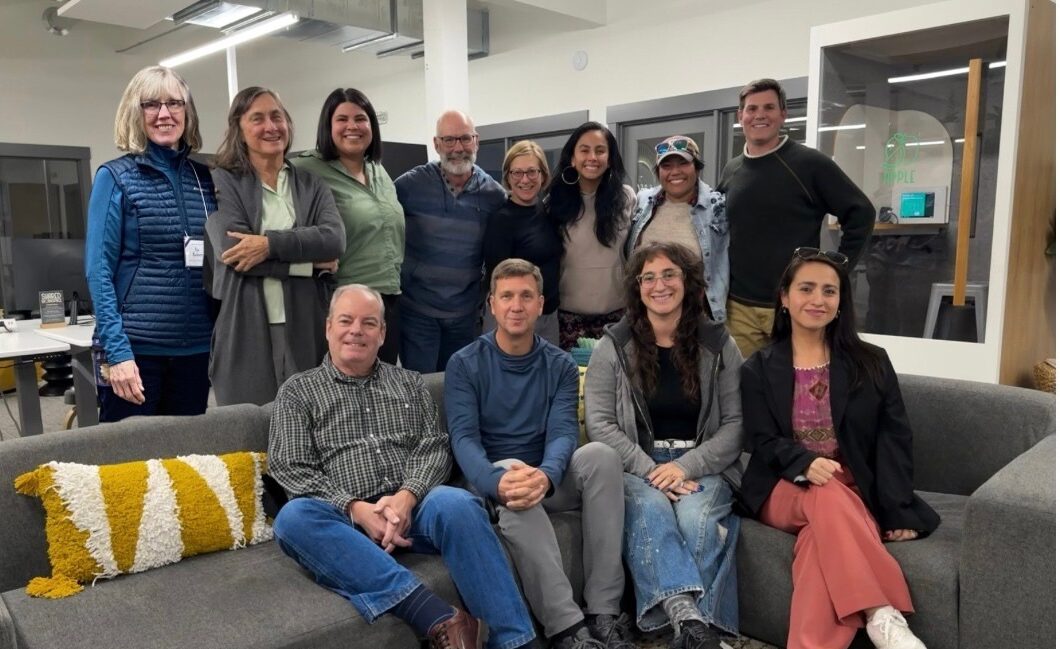
Another challenge is transportation. There is very little public transportation in Montana to speak of, and undocumented immigrants or immigrants in the process of receiving documentation cannot receive a driver’s license. Bienvenidos is working to pass state legislation to enact driver’s privilege cards which would give undocumented people proof that they learned the rules of the road and can drive legally in Montana. These driver’s privilege cards are not a legal form of identification or voter ID, but they would help immigrants travel to and from work without constant fear of getting pulled over and arrested.
As of 2022, some form of driver’s privilege card is issued in 20 U.S. states, according to the National Immigration Law Center.
From health care and language resources to the housing market and transportation, there isn’t much of a safety net for immigrants moving to Gallatin Valley, leaving groups like Bienvenidos to fill in the gaps.
“We try really hard to combat the misinformation that these migrants are getting a bunch of taxpayer public assistance, which is a narrative that’s happening, and every time I hear it I’m like, what public assistance are they receiving? Because they’re not eligible,” Levinson said.
Bienvenidos doesn’t receive any state or federal money, and instead relies upon individual donors and foundation grants to fund their programs and pay their three employees, two of which are part-time. Many members of the board work 30 to 40 hours a week, unpaid, to help immigrants overcome the challenges they face, and Bienvenidos depends on the thousands of hours donated every year by their mentors and other volunteers.
One of those volunteers is Dr. Sally Moyce. An assistant professor in Montana State University’s School of Nursing, Moyce volunteered as a mentor for Bienvenidos, and she recently joined its board. Through her position at MSU, Moyce hosts health fairs for the Latino immigrant community in Gallatin Valley, where she and her team provide health screenings, perform dental cleanings, and collect data to determine the social and cultural determinants of health outcomes. She and her team have found that over 80% don’t have health insurance, despite most of them working jobs with steady income.
“We know that people are coming to work, so most people are employed, and they’re making good money,” Moyce said. “It’s not that people don’t have money to pay for things like health care or dental care, it’s that the systems aren’t set up to allow them to do that.”
Now Moyce is working alongside Levinson and others on Bienvenidos’ board to brainstorm solutions to meet material needs for a vulnerable population. But Bienvenidos is concerned with more than material needs. They’re also committed to helping immigrants find belonging in their new home.
‘We all deserve to feel at home’
“Sometimes belonging or succeeding, it’s not about money or needs, but really feeling connected to where you belong, where you are,” Zamora said. “Our new tagline is ‘We all deserve to feel at home,’ and once you feel at home, you feel like you belong, then you feel like you can thrive. That’s our focus: to really create an environment where they are so sure that this community is focused on them thriving. When they thrive, we all thrive.”
Bienvenidos fosters belonging through their mentor program as well as their kids programs, like their collaboration with the Bridger Ski Foundation that gets children on the mountain to learn how to ski. The nonprofit also hosts clothing drives and community events, like their “Stories Beyond Borders” fundraiser dinner that will take place on Dec. 3 to highlight the journeys of immigrant families.


As an immigrant herself, Zamora is uniquely aware of how hard it can be to belong in a new country. She moved to the United States from Columbia when she was 17, and says she had a privileged experience because her father was already living in the U.S. But it still wasn’t easy.
“It can still be very isolating when you don’t have the tools, and the community doesn’t offer the tools like English education,” Zamora said.
In the states, her father was known as a resource for other newcomers, helping them to get oriented in their new home. This motivated Zamora to do the same.
“I just realized that sometimes it’s just information sharing or being an ear, or someone advocating and telling you your rights,” Zamora said. “And all of that stuck to me. I realized that there were so many people that just needed someone to support them.”
While still attending Montana State University, she started English Para Todos—which translates to English for All—to provide English classes for people new to the language, and when Levinson asked her to join Bienvenidos’ board in 2023, she jumped at the chance. Now executive director, Zamora has big dreams for the nonprofit’s future.
A vision for the future
Zamora is planning a welcome center “for the community, by the community,” called El Centro that would function as a one-stop shop for Spanish-speakers. El Centro would include health advocates, interpreters, and social navigators to connect people to the community—a community that Zamora hopes “celebrates differences, celebrates the richness of multiple cultures, and welcomes them with open arms.”
Already Bienvenidos is bringing together the community to support its immigrant population. Each month, the nonprofit convenes the Migrant Community Coordination group to collaborate with different agencies and organizations, including the Bozeman Police Department, City of Bozeman, Haven and HRDC, to address the needs of migrants in the community.
“Nobody in the valley has much experience with supporting an immigrant population, so it’s nice to bring together these smart people who are all committed to helping create a sense of belonging and a more inclusive environment for people,” said Moyce, who attends these meetings.
El Centro would model this kind of collaboration, just on a bigger scale, and cultivate the kind of community that Zamora and Levinson both hope for.
“I personally would hope to see a community that leads with curiosity instead of making assumptions about people,” said Levinson, who grew up in Bozeman and has witnessed its rapid growth over the past few decades. “That asks questions, instead of painting people with broad generalizations and stereotypes and strokes.”
Immigration is a highly controversial topic in America. It fuels anger and outrage on both sides of the political spectrum, but Zamora and Levinson want to shift attention away from the heated, nationalized conversation.
“I think that if we play into that conversation, we’re defeating the purpose of what we do at this point,” Levinson said. “I think that what we need to focus on is that these are human beings that we can help. We can just illuminate ways to their own empowerment. And it doesn’t matter if you are documented or undocumented. It doesn’t matter if you’re from this country or that country. It doesn’t really matter where you’re from. We’re on a rock floating in infinite space, but really we’re just neighbors that are opening our arms to each other and just celebrating everybody’s story. And that’s what we stick to. Everybody should deserve to thrive, no matter where they come from.”

